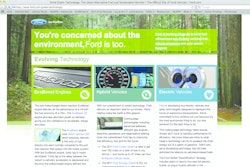
This is one of the key findings of the 2011 Pricelock Fuel Pricing Survey, conducted by Pricelock, a provider of diesel and gasoline price/hedging protection for U.S. businesses.
Pricelock partnered with Automotive Fleet to conduct the survey in January and February 2011. Respondents included 451 executives, fleet managers and other industry professionals associated with small, medium and large fleets representing a broad range of industries. The majority of respondents (28 percent) indicated annual company revenues of more than $100 million. This is the second year in a row that Pricelock has polled companies about fuel issues.
Survey results for 2011 show that concern about the impact of fuel prices on business has escalated over the past year, with an overwhelming 99 percent of respondents now concerned about the negative impact of fuel prices on their business.
In addition to the 65 percent of businesses that are forced to absorb fuel increases, some 28 percent reported that higher fuel costs hurt their company earnings, and 11 percent reported cutting other business costs to offset fuel-price increases.
Top fuel concerns among businesses are fuel efficiency (44 percent) and the inability to control fuel costs (40 percent). Nearly 75 percent of fleets said they are willing to drive out of their way to save 25 cents per gallon of gas, and 25 percent said they would drive five miles or more for such savings.
"With gasoline and diesel prices at two-year highs, most businesses are forced to take an immediate hit to their bottom line," said Naveen Agarwal, chief operating officer of Pricelock. "Many small and medium-sized firms are unaware of the fuel price protection strategies available to them or mistakenly believe that they are too small to take advantage of programs that make their fuel costs predictable."
Agarwal added that by using technology and aggregating demand, Pricelock can help businesses of all sizes save on fuel costs, even those that have small fuel budgets or lack hedging expertise.
This year's survey found that only 31 percent of businesses have considered implementing a fuel price protection program. Of those, 35 percent have implemented such a program, and nearly 85 percent reported being satisfied. Businesses implementing fuel price protection programs tend to be firms with large fleets and high fuel-usage volumes, according to Pricelock.
Survey results can be found here.
Related Links
More Articles of Interest
- 3PL Update: Differentiate or Die — Third-party logistics providers have had a tough ride over the past two years, but 3PLs looking to thrive in the 'New Normal' are bringing new innovations to the market
- Prestolite Charges up Its Inventory Management — When retirements drained its planning expertise and a bad mix of too much inventory put a strain on cash flow, the company brought in a new forecasting tool to power its planning process
- Three Common Pitfalls in Inventory Optimization — How to use a service provider to create a competitive advantage out of working capital













